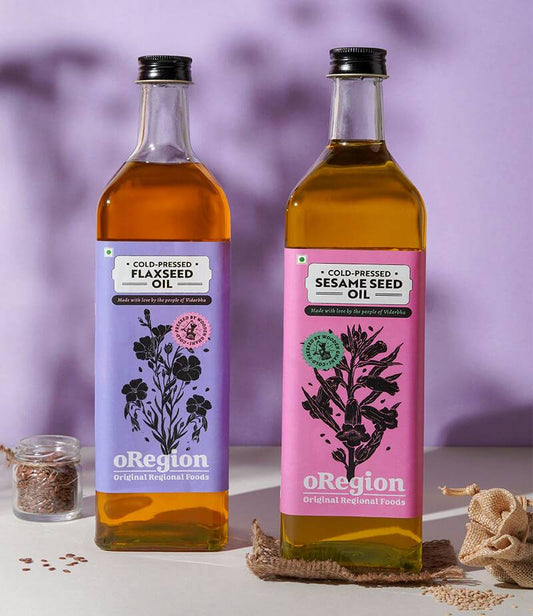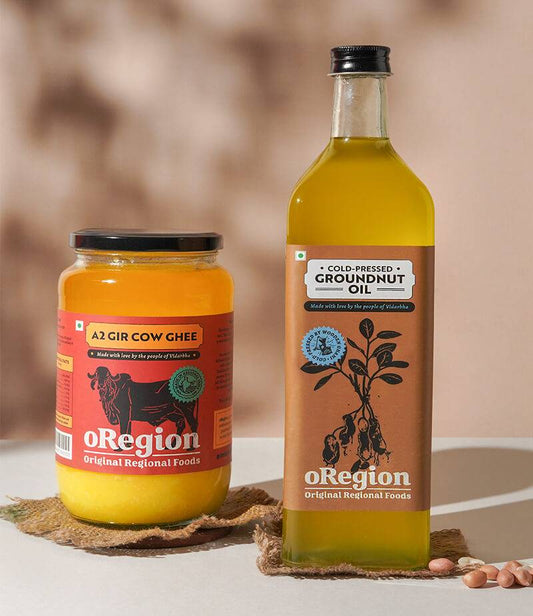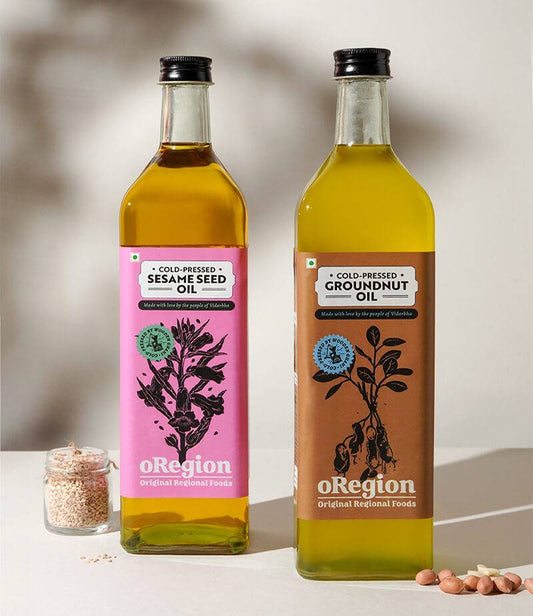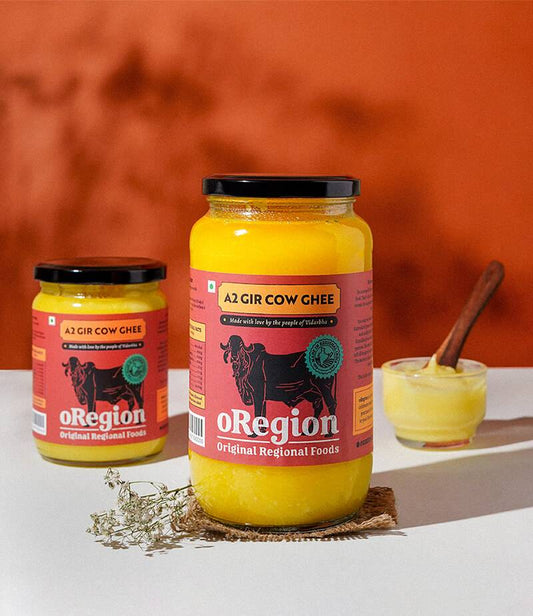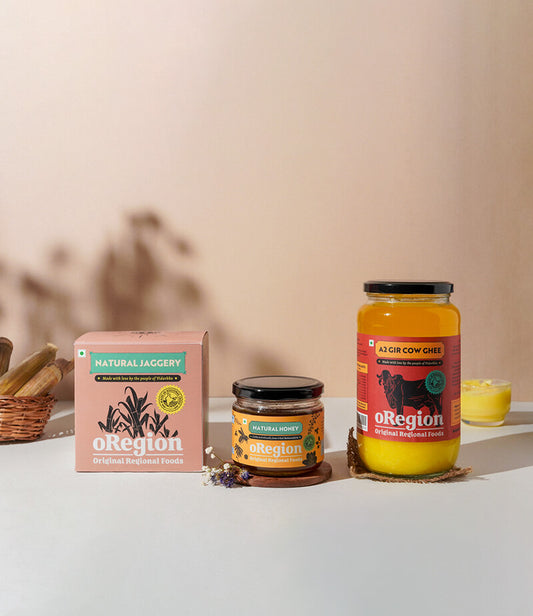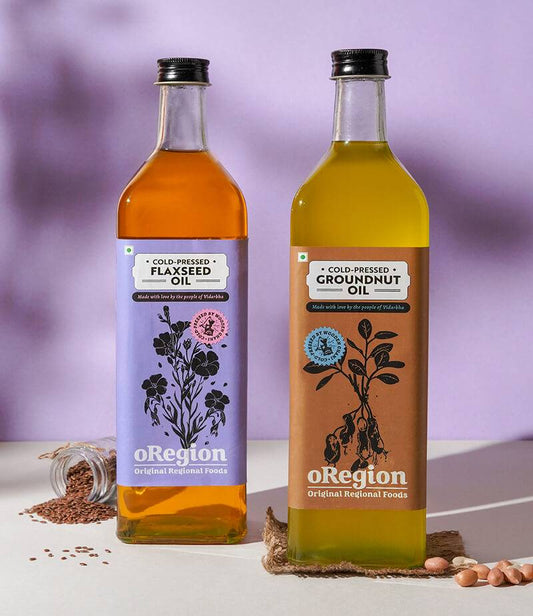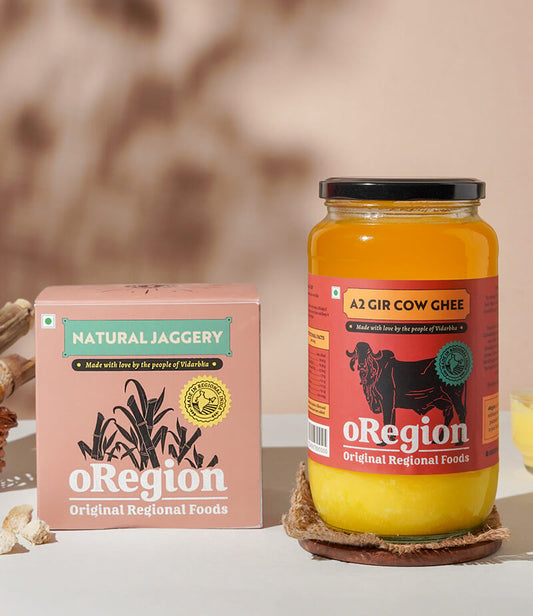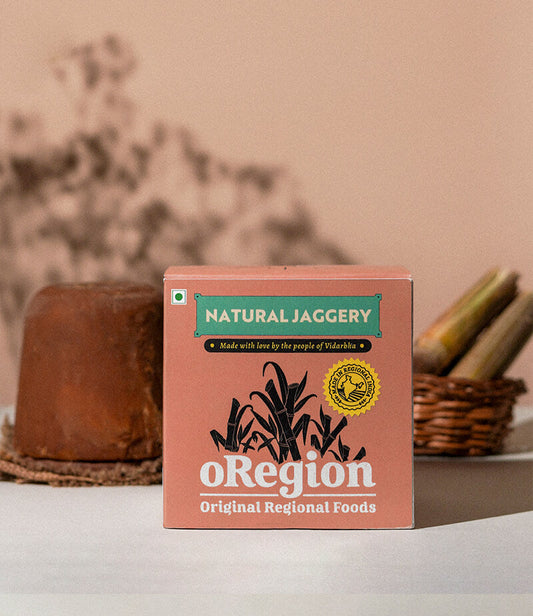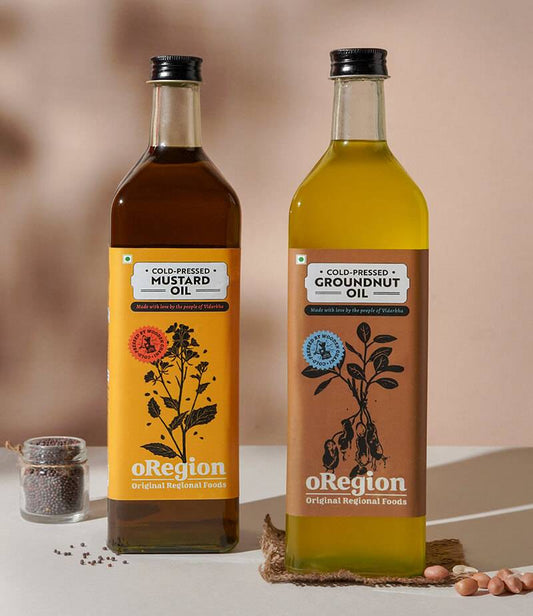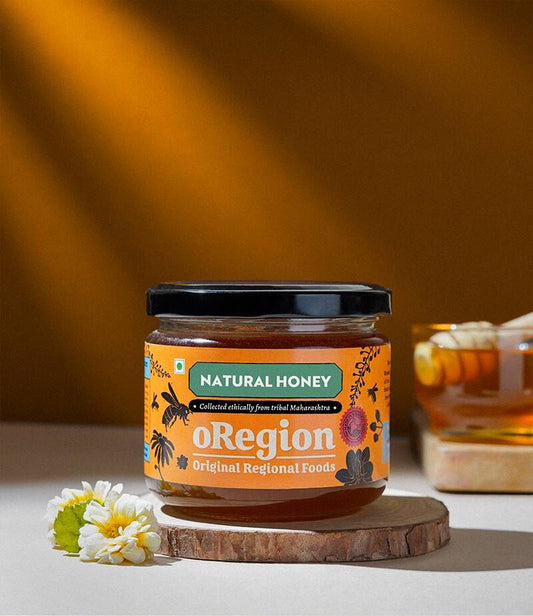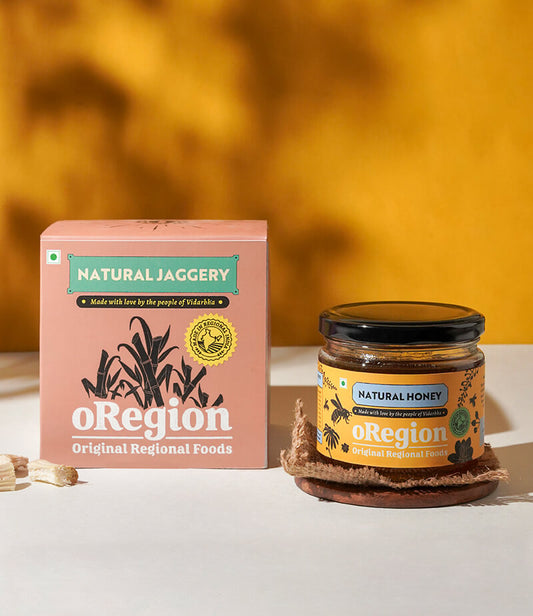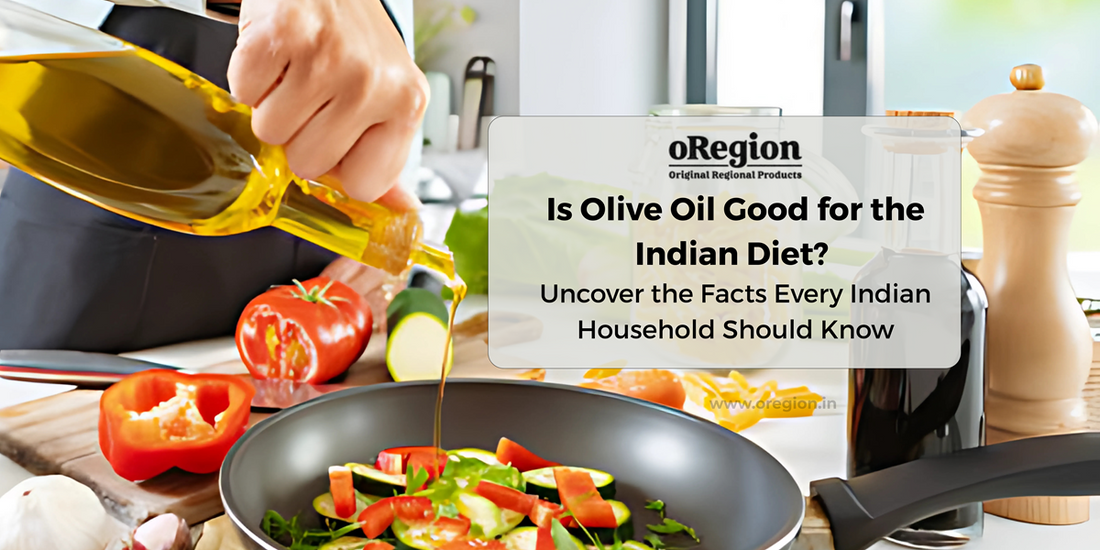
Is Olive Oil Good for the Indian Diet? Uncover the Facts Every Indian Household Should Know
By oregion foodsFor years now, olive oil has been marketed as the gold standard of healthy cooking oils. But the question remains — is olive oil truly good for the Indian diet, or have we fallen prey to a cleverly disguised marketing fad? The truth may surprise many of us who equate olive oil with wellness. At oRegion, we believe in conscious eating, rooted in culture, climate, and nutritional science. It’s time we reassess what’s actually good for us.
The Health Halo Around Olive Oil: Trend or Truth?
There’s no denying that olive oil contains heart-friendly fats, particularly monounsaturated fatty acids (MUFA), and that it has been a cornerstone of the Mediterranean diet. But what works for one geography, culture, and genetic makeup may not be suitable for another.
In Indian kitchens, we’ve replaced age-old staples like wood pressed groundnut oil, cold pressed Mustard Oil, and flaxseed oil with an imported alternative — without questioning whether it suits our digestive systems, cooking techniques, or nutritional requirements.
The Nutrient Breakdown: What’s Inside Olive Oil?
Olive oil is mostly composed of:
-
Omega-9 (Oleic acid): ~70–75%
-
Omega-6 (Linoleic acid): ~10–12%
-
Omega-3 (Alpha-linolenic acid): ~0.5–1.5%
Omega-9: Heart-healthy but not unique
Yes, omega-9 is beneficial. But did you know that cold pressed groundnut oil (also known as chekku oil in South India) contains a similar omega-9 content, while being more flavorful, suitable for high-heat cooking, and culturally aligned with Indian cuisine?
Omega-6: Necessary, but often in excess
The problem is that we already get too much omega-6 from our diets through processed foods, seeds, and grains. An excess leads to inflammation, and this is where olive oil does not help — its omega-6 content pushes us further away from balance.
Omega-3: Critically low and often ignored
This is the biggest shortcoming of olive oil. It contains less than 1.5% omega-3, an essential fatty acid we cannot produce ourselves. Indian diets are already deficient in omega-3, and switching to olive oil only worsens that gap.
The Omega Imbalance: What Your Body Actually Needs
Research suggests that the ideal ratio of omega-6 to omega-3 should be 4:1 or lower. This helps manage inflammation, supports heart health, enhances brain function, and regulates hormones.
However, olive oil’s ratio is a problematic 10:1 or higher, skewed heavily toward omega-6.
This imbalance is linked to:
-
Chronic inflammation
-
Heart disease
-
Hormonal disruptions
-
Autoimmune conditions
Why Omega-9 Alone Isn’t Enough
Indian bodies need a balanced fatty acid profile — not just omega-9. Oils rich in plant-based omega-3 like Cold Pressed Flaxseed Oil (aka alsi ka tel) are crucial for hormonal health, mental clarity, and anti-inflammatory support.
Climate, Culture, and Cooking: Is Olive Oil Even Meant for Us?
Mediterranean Origins vs. Indian Weather
Olive oil evolved in cold, dry European climates, where heavier fats are beneficial for thermoregulation. In contrast, India’s tropical climate demands lighter, digestive-friendly oils that can adapt to spices, heat, and moisture.
Digestive Needs and Traditional Cooking Methods
From tadka to deep frying, Indian cooking involves high temperatures. Olive oil breaks down at these temperatures and releases harmful compounds. On the other hand, cold pressed mustard oil and wood pressed groundnut oil are heat-stable, making them ideal for Indian recipes.
The Forgotten Indian Super Oils: Nutritionally Rich, Culturally Aligned
It’s time to bring our attention back to homegrown oils that not only match but exceed olive oil in nutritional value.
1. Cold Pressed Flaxseed Oil (Alsi Tel)
-
Omega-3 rich (up to 55%)
-
Supports brain health, hormonal balance, and anti-inflammatory response
-
An excellent vegan omega 3 source
-
Ideal olive oil replacement for health-conscious vegans
-
Try: oRegion Cold Pressed Flaxseed Oil
2. Cold Pressed Mustard Oil (Sarso Tel)
-
Naturally balances omega-3 and omega-6
-
Antimicrobial and gut-supportive
-
High smoke point, perfect for frying and sautéing
-
Traditional Ayurvedic oil for winters
-
Try: oRegion Cold Pressed Mustard Oil
3. Cold Pressed Groundnut Oil (Best Wood Pressed Groundnut Oil)
-
High in MUFA (omega-9)
-
Flavorful and ideal for Indian cuisine
-
Less refined, no additives, retains aroma
-
A healthier, organic cold pressed groundnut oil alternative
-
Try: oRegion Groundnut Oil
4. Cold Pressed Sesame Oil
-
Rich in antioxidants like sesamol and vitamin E
-
Balances doshas in Ayurveda
-
Improves skin, hair, and internal health
-
Excellent for oil pulling and cooking
-
Try: Buy Sesame Oil Online from oRegion
Imported Wellness vs. Indigenous Wisdom: Rethinking What’s 'Healthy'
India doesn’t need to import health — we grow it.
Blindly following global trends has disconnected us from our ancestral knowledge, agriculture, and body rhythms.
Traditional oils like cold pressed flax oil, sarso chekku, cold pressed kachi ghani mustard oil, and chekku Groundnut Oil are produced with minimal processing, retaining all the micronutrients lost in refining.
Not to mention — buying regional supports local farmers, soil sustainability, and the Indian economy.
Rediscovering India’s Wellness Legacy: A Call to Conscious Eating
We must now prioritize:
-
Nutritional education: Knowing which oils to use for what purpose.
-
Climate-suited choices: Cooking oils that match our digestion and weather.
-
Cultural authenticity: Reconnecting with our roots, not just for nostalgia, but for real, sustainable health.
Olive oil is not the enemy, but it is not the only answer. Let’s start embracing what has always worked — nutrient-dense, cold-pressed oils from Indian soil.
Conclusion: Eat Local, Think Global — But Choose What’s Right for You
Don’t fall for trends disguised as science. Choose oils that nourish your body inside and out, support your traditions, and align with the way you cook.
At oRegion, we champion the oils our grandmothers trusted — now cold-pressed, chemical-free, and perfect for the modern Indian lifestyle.
✅ Is Your Flaxseed Oil Really Pure? Find Out Now
✅ Don’t Compromise on Health: Fake Ghee and Oil Dangers
✅ Quality First: oRegion's Purity Promise in Cold Pressed Oils
Because real wellness doesn’t come from a label. It comes from soil, science, and soul.
